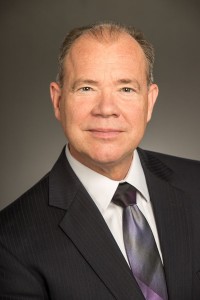Last week’s column presented the case for strong opposition to any new transportation taxes in California. But on Thursday, the Executive Director of Transportation California, Will Kempton, published a response in Fox and Hounds, a California political blog run by Joel Fox, which repeated the need for higher taxes.
Will Kempton is a respected transportation expert who agrees with the central premise of my original column. That is, that California’s transportation crisis can no longer be ignored. California has a transportation and road repair maintenance backlog that some estimate will total $58 billion over the next ten years. It is also true that, thanks to alternative vehicles and more fuel efficient cars (and never mind the infamous “gas tax swap”) that fuel tax revenues have become more volatile year-over-year.
So, now that we’ve agreed on the need, how do we deal with it? Mr. Kempton argues that we have no choice but to raise taxes. Not only do we disagree, but it is abundantly clear that practically all of this backlog can be funded using existing General Fund resources. Consider:
- Nearly $1 billion a year of truck weight fees are being diverted from road repair to paying off transportation bond debt. Total: $10 billion over ten years.
- Nearly $9 billion in bonds for high speed rail can be diverted for road construction. (And if voter approval is deemed necessary, that measure passes in a heartbeat).
- Currently, California spends only 20 percent of its $10 billion General Fund transportation budget on road maintenance. Especially with General Fund revenue at record levels, a boost to 50 percent does not seem excessive: Total: $30 billion over ten years.
- Currently, $500 million in $3 billion worth of cap-and-trade funding goes to road maintenance. Doubling that amount adds $5 billion over ten years.
The grand total of these reforms is $54 billion over ten years. Granted, not all of these things can be done overnight and the first two items will likely require statewide voter approval. But the Legislature still has plenty of time to qualify a constitutional amendment for the November ballot. And obviously, placing a greater General Fund emphasis on transportation projects will require that we figure out how to prioritize our resources better in the face of a record $122 billion budget.
Let’s be honest. It is really the word “prioritize” that is at issue here. Some of these reforms will be easier to implement than others, but unless we engage them head on, which hasn’t happened in the Legislature, how can we ever hope to solve this problem? Taxpayers should refuse to accept the incessant call for higher taxes when relatively simple reforms that could add tens of billions of dollars of funding to our roads, without raising taxes, are ignored. How can we discuss a punitive and regressive gas tax increase when common-sense legislation by State Senator John Moorlach to privatize a small portion of CalTrans projects, or to establish a pilot project to have county transportation agencies assume projects from CalTrans, are quickly rejected in their first policy committee?
We agree with Kempton that the status quo is no longer acceptable. But there are a myriad of fiscal and policy changes that are viable and should be discussed and implemented. And until legislative Democrats, the transportation community, labor and environmentalists are willing to even come to the table, why should the burden be on California motorists to pay higher taxes?
Jon Coupal is president of the Howard Jarvis Taxpayers Association — California’s largest grass-roots taxpayer organization dedicated to the protection of Proposition 13 and the advancement of taxpayers’ rights.


